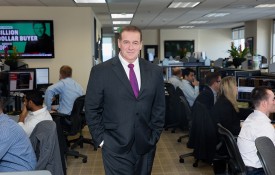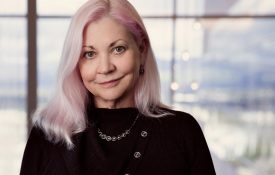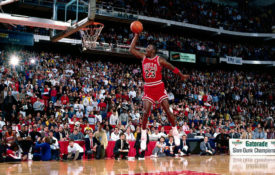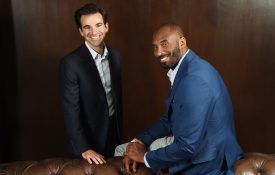From film school to the White House, Raina Kumra has never been one to sit still in her career. More importantly, however, she tries to make sure her work has a true impact. From providing affordable internet access to remote parts of the world to solving a national epidemic in nutrition, her goal is to make peoples lives better.
Even when she felt like her day job wasn’t necessarily satisfying to her soul, she still managed to pick up skills that she leverages to this day.
She’s come a long way since feeling like she missed the boat on this new thing called the internet, and her story may very well inspire you to start a movement.
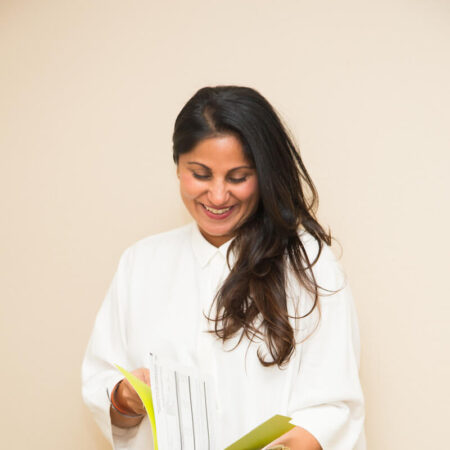
Raina is a co-founder of Mavin, a mobile startup focused on affordable internet access.
THE BABYSITTING TO FILM EDITING TO ADVERTISING PIPELINE
Erik Huberman: What were you interested in as a young kid? Were you gravitating toward engineering or teaching, like your parents? Or did you have your own desires?
Raina Kumra: As an Indian kid, you’re not really allowed to have your own desire. In a way, you’re just like, “You’re going to be a doctor.” That’s the answer that you always give. You’re trained from childhood, and I was interested in medicine, but I felt, I have a big, creative life. I was much more interested in music and the arts and film. I had to have that come-to-Jesus talk with my parents and tell them I was going to film school. They’re like, “That’s fine. You can go to medical school and film school at the same time, if you want.”
Huberman: Where did your entrepreneurial journey begin? What got you hooked?
Kumra: Well, I was babysitting, and I got my very first check for 20 bucks or something, maybe 10 at that time. I was so excited. I had a bunch of other friends who had just started babysitting, and some of us were getting paid $12 an hour, and some of us were getting paid $10 and some were getting paid $6.
It was like, hey, wait a minute, I think we should all be getting $12 an hour. We formed the sort of babysitters union where we would have a club and parents would book one of us and if one of us wasn’t available, the other would come in. Parents loved it. They were happy to pay our higher rate.
Huberman: It was closer to high school that you started to fall in love with film?
Kumra: I started making films really young and I just had a blast with it. I loved the editing process. I loved all of that. It was no surprise that my first real job was a video editor. I did go to film school at Boston University with a minor in anthropology. Then I ended up making documentaries.
For a while, I was a video editor on Scientific American Frontiers with Alan Alda. I had a really great time on that job. Then I had kind of gone to shoot another documentary, came back about six months later, and all the equipment had gone online. I was like, Oh, my gosh, I just spent four years perfecting my craft and becoming the greatest editor ever, and now everything’s online. What is this internet thing? I gotta go find out more about it.
I had always wanted to live in New York—I grew up on the West Coast—so I moved to New York without my next job lined up. I enrolled at NYU’s Interactive Telecommunications Program, where I learned how to code and how to use robotics and sensors. That was the next chapter for me.
Huberman: How long did you go to school?
Kumra: It was a two-year program. I graduated right around 9/11. I had great plans to be a video installation artist and sculptor and work with technology in the arts. But after 9/11, I really reconsidered it and went back to storytelling.
I ended up temping at an ad agency that was working on Errol Morris’ documentary for Cantor Fitzgerald. That was sort of my stepping stone into advertising. I never, ever planned to work in advertising. I just had this bridge with the documentary, and when I got in there, I was one of maybe two people who knew how to make a website.
It was the very early days of digital, and I just found the most creative, passionate people there.
I realized that I had really written off advertising as a place for shallow people who only cared about making money in marketing.
But I cast aside that judgment, because of the quality of the people I was working with. We all had our creative side hustles. It was so fun. It was like a golden era in my career, to be 20 in New York in advertising when clients and budgets were flush, when magazines had money. There was so much activity.
Being one of the few people with a digital skill set was great. I got hired pretty much right away and negotiated a good starting salary because I had this new degree.
MAKE A PIVOT AND WIND UP AT THE WHITE HOUSE
Huberman: Next you went to Harvard Graduate School of Design. Where did that come from? What did you want to do with that?
Kumra: I wanted to go a lot deeper into, “How is architecture and urban planning impacting us as humans?” So I already had a little bit of background and that was compelling enough to the studies I embarked on at Harvard.
I walked away with a much deeper understanding of the role of digital woven in and out of built environments and our lives. It was by far the best educational year of my life. I got to take a class with [architect] Rem Koolhaas. We got sent to Moscow to work on an installation for him, and we designed it and executed it.
I shot a documentary all in Russian with a translator with brutalist architects who were at the end of their lives, some of them, and it was just phenomenal. I got to study under one of my favorite people, who’s now a good friend, Paola Antonelli, the design curator at MoMA. It was fantastic.
Huberman: At this point, is there a particular career you’re looking for? Or were you just like, “I’ll figure it out!”?
Kumra: At this point, I knew I didn’t want to do advertising the rest of my life. I thought, What else can I do with this skill set? How can I broaden this knowledge and apply it to something that benefits humanity?
Huberman: Which was …?
Kumra: Initially it was making websites while I figured that out. I was consulting. I had my agency. I was taking on projects. I had a pretty flexible, good, well-paid life. It was a sweet spot, but it wasn’t really filling my soul.
I just realized I couldn’t sell any more sneakers, and I couldn’t sell any more soda to people. I needed to do something extreme. My mom was born in Africa. I went to Malawi, where she was born, where we still had some connections. I started a solar training initiative—I did a Kickstarter to raise money for it—to basically teach a curriculum of installation and maintenance and repair for solar panels. What was so wonderful about that is that the community adopted it, but a larger nonprofit that had many schools was said it could use this.
Huberman: And the success of that is what got you to the State Department, right?
Kumra: Yes, that became the next pivot. It took me getting to Africa to figure out where I wanted to land, but it was a really unique opportunity to do diplomatic innovation, bringing digital tools and thinking into diplomacy.
It came from meeting this woman, Katie Stanton, who is an amazing person. She used to be the CMO of Color Genomics and worked at Twitter and now runs Moxie Ventures. And so Katie was like, “We need people like you.” A couple of emails later, I had a job.
Huberman: Tell us about working with Barack Obama.
Kumra: I got tapped on the shoulder by Walter Isaacson and President Obama to go lead innovation at the Broadcasting Board of Governors [now the United States Agency for Global Media]. I co-led it with this amazing colleague, Rob Bull. He came from a public radio world and I came from digital advertising, and the two of us together were able to take this dusty old radio and television agency that had five TV networks and rebranded 72 mobile websites—I rebranded five radio and television brand stations—and then we served millions of people weekly. I brought in partnerships from Vice and other places. It was a really great time.
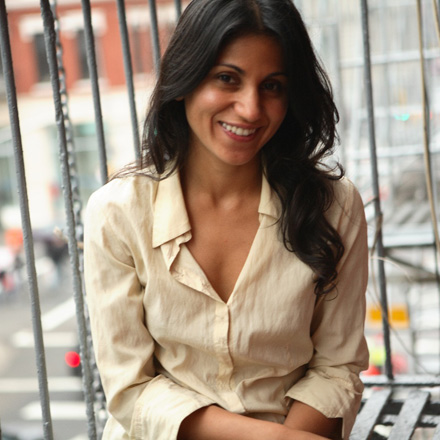
Raina during her time as Senior New Media Advisor in the State Department’s Office of eDiplomacy
FINDING WORK THAT BUILDS A MOVEMENT
Huberman: At some point were you like, “This is what I want to do for the rest of my life”?
Kumra: I don’t think I’m ever going to be that person who says, “I want to do this for the rest of my life.”
I loved my time at the nonprofit but there were so many people better qualified for that position than me. With the government work, I never planned to be a lifer. I was always there because of President Obama. I came back to New York and worked on a couple of projects, then I moved back to California in 2012.
Since then, I’ve raised a family. I’ve started a new business. I fulfilled my parents’ dream of being a doctor, at least for a few weeks, while I nursed my sick family during the pandemic.
Huberman: When you make so many of these changes—I find them really exciting—does it ever feel like you’re throwing other opportunities away?
Kumra: I have always been like, I’m going to find the place where I can make the biggest dent as fast as possible. And then I’m going to to leave that work to be continued by others. This puts systems in place and passes them to the most qualified people. That’s so rewarding. I still have people writing me to say thank you or that my work has impacted their lives.
I think switching over, and [changing careers] is way better than me just consulting forever and ever.
Huberman: So what’s next?
Kumra: The company I mentioned is called Spicewell. I started it when my family was sick and I felt like so much stuff in the hands of Big Pharma was not actually healthy or natural. We’re all walking around with a nutrient deficiency. So my new focus and where I want to make my next big impact is in food. It’s all about nutrition.
I don’t just see this as a CPG [consumer packaged goods] company. This is absolutely a movement. I’ve only ever built movements in my career. I can’t help it.
Listen to the full interview here.
Erik Huberman is founder and CEO of Hawke Media, a full-service outsourced CMO based in Santa Monica, Calif., that launched in 2014 and has been valued at $60 million.










































